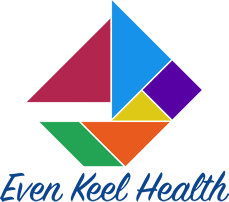Two months ago my friend Jim died. Every day since, he has been on my mind at some point in my day. We didn’t know each other long, less than a year, but the time we shared was really meaningful. He liked that we could talk about anything and everything. I knew, as we became fast friends, that we might not have long, so I made a point of not missing out on opportunities to spend time together. Jim died just before celebrating his 94th birthday, following a short illness.
Our time together changed both of us for the better. My friendship with him, reminded me that I’m capable of being “all in” even if I know that it might be short-lived; that the pain of the loss does not out-weight the meaningfulness of the shared experience.
That was a valuable reminder. Over my many years working with very sick patients I’ve experienced a lot of losses. But even before that, I was someone who favoured having a few close friends and who experienced losses deeply. Prone to introspection, I often wondered how it was that some people seemed to manage multiple short-term connections and then more easily bounce back from their loss after they exited each other’s lives. The answer is a complex one and I’m still figuring out all its parts but here’s a bit of what I know about getting through losses.
Mourning
We need to mourn our losses. Mourning is when we take the grief we feel inside and find ways to express it outside ourselves.
I’m getting ahead of myself. Maybe I should tell you about grief first.
Grief
Grief is our internal experience of loss. The word is used to define our experience facing all kinds of loss. Today, I’m talking about the loss of a loved one, from dying.
There is no right or only way to mourn. However, I would venture to say that, in my experience, those who find a way to share their experience with others, tend to fare better.
Complicated grief
Some people have to deal with losing a lot of people during their lifetime. If there are too many losses, within too short a time span and the person hasn’t had the opportunity to “properly” mourn one loss then the impact can be further complicated. Sometimes a new loss can trigger the resurfacing of previous unresolved losses and make dealing with the new loss more difficult.
Unresolved losses can lead a person to adapt by emotionally withdrawing and avoid making new meaningful connections with others for fear that they might have to experience another loss. This seems very protective and is partly unconscious. It is also not the best coping strategy for the long run.
We can’t selectively cut out some of our emotions and feelings. Invariably, if we try, we end up cutting everything out and numbing ourselves. The consequence of this is that we end up depriving ourselves of the good stuff too.
If, as time passes, you feel like your grief is getting heavier instead of lighter, you might be experiencing complicated grief.
Here for you
You don’t have to struggle alone. If you’re concerned about the way you are coping, reach out! I can help you through this. If you are worried about someone else, reach out! I can help you learn more about this and help you help them.
During the “social distancing” period some of my services are available by phone and via secure video conferencing and my rates are on a sliding scale. Contact me for details.
Nathalie Héloïse Graveline, NP










